Applying to College During COVID-19
What Do Parents and
Students Need to Know

No standardized tests? No on-campus visits? This year’s college application process is quite different for high school seniors and their families.
Last March, when students were forced into virtual learning and social isolation, it was inevitable that the college admissions process and metrics would change too. We connected with college counselors from two Baltimore high schools, an undergraduate admissions counselor from a Maryland university and a local mom of three boys to learn how the pandemic has impacted applying, visiting and deciding where to go.
Traditionally, enrollment committees evaluate student applicants, considering their grades, test scores, extracurricular activities and personal statement or essay, evaluating their readiness for higher education and their “fit” for the college or university community. But the pandemic froze so many of those activities and created unprecedented challenges even for the most high-achieving high schoolers.
“Many universities went test-optional for the 2020-21 admission cycle, including some of the most highly selective institutions,” says Elizabeth W. Almeter, director of college counseling at Garrison Forest School. “Spring break and summer college exploration trips were cancelled as admission offices were closed for visitors. Summer programs including internships, research opportunities, and work experiences were halted.”
These abrupt changes had a direct impact on not only student experiences and opportunities, but also how students represented themselves in their applications to the institutions of their choice.

Student applicants have always been reviewed on more than just exceptional grades and test scores. “In the review process, we will of course keep in mind the impact the pandemic has had on many things – from classroom learning to extra-curricular activities and enrichment.” says Shannon Miller, director of on-campus programs for Undergraduate Admissions at Johns Hopkins University. Additionally, with Johns Hopkins and most other higher education institutions going “test optional” for this admissions cycle, applicants are being reviewed holistically more than ever before.
“If a student chooses not to submit testing, we will focus our evaluation on other academic pieces in their file – transcript and grades, rigor of curriculum, counselor and teacher comments … and any academic clubs or organizations students may have been involved with, academic awards they may have received, or enrichment they may have participated in,” she adds.
So how exactly do students best differentiate themselves?
Essays and personal statements are still the best way for students to really show who they are and how they “fit” with their prospective schools of choice. If students have missed out on internships, volunteer opportunities, leadership experiences and coursework, they can still shine in their personal essay.
“Colleges are understanding of missed opportunities and the difficulty of losses of outlets, passions, and socialization,” says Almeter. ” While they’re not penalizing students for not doing more, they are taking notice of students who have used this time to know themselves better in some way.”
High school students at Beth Tfiloh Dahan Community School have found unique ways to participate in extracurricular activities virtually, truly finding ways to shine as student leaders.
“We have advised our students on how to seek out virtual opportunities… by pivoting from in-person service to virtual service. Students can provide virtual tutoring for younger peers as well as making cards to send to nursing home patients or making phone calls to the homebound,” Halaine Steinberg, director of college guidance at Beth Tfiloh, states.
Luckily, many school extracurricular activities such as musical performances and school newspaper publications, have also gone online. So, if a student is willing and able to take the initiative, there are still many ways for them to still seek out opportunities to distinguish themselves on their applications as well as stay active and engaged in their community – just socially distant and most likely through Zoom.
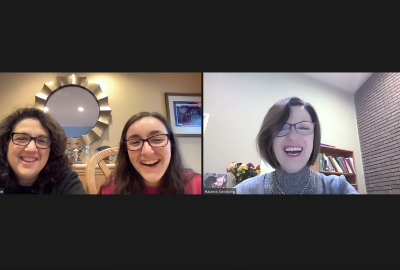
Obviously, this shift to virtually learning and online engagement has also changed how prospective students connect with campuses and evaluate their future homes away from home. Once the acceptance letters start rolling in, many families shift to visiting campuses to make their final decisions.
Most campuses, including Johns Hopkins, have embraced an entirely virtual campus visit experience. Steinberg stresses that students at Beth Tfiloh are unable to tour or visit college campuses, and, instead, “must take advantage of the virtual tours and sessions offered by colleges.”
Also, be sure to check out the resume-building virtual programing and events for your high schoolers through 4Front, Jewish Baltimore’s comprehensive teen initiative.
One Student’s Story
Jill Snyder, a Baltimore mom to three boys who all attended McDonogh School, is currently going through the college application and decision process for the third and final time with her youngest. Their personal experiences have echoed what our professionals are saying.
Now that the applications are all in, they face their biggest obstacle – no campus visits.
“My son applied to several schools without having the opportunity to visit them due to COVID-19. My other sons were able to rank their preferences and apply early decision, but my youngest was not comfortable making any binding commitments to a school he had not visited in person.”
The Snyders participated in virtual campus tours and interactive question and answer sessions with current students, yet still found this experience lacking and it was “very difficult to get a feel for the schools.”
Many high school seniors across the country will be in this position this spring. How will they effectively evaluate their options without ever visiting in person? Snyder’s son is not the only one selecting a college they will call home for the next four years without having set foot on the campus.
It’s not ideal, but there are ways to feel connected. Try to take advantage of any smaller group session or one-on-one virtual interactions as they may lend themselves to being more authentic. Talk to graduates from your high school that are attending schools you are interested in.
And, when visiting campuses virtually, don’t forget to explore Jewish life on campus. If your college search is in-state, visit our website to learn more about our five Maryland campus Hillels. Anything that will help make your home away from home feel more like… home.
As for Jill Snyder’s youngest son, where will he decide to go next year?
“He received his first acceptances last week, so he is just happy to know that he won’t be living at home next year!”
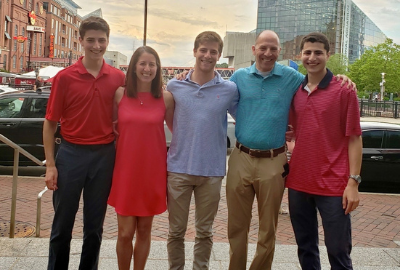
Subscribe to our newsletter
The Associated is a home for everyone in the Baltimore Jewish community. We offer several email lists to help people find a community, engage with their peers and support Jewish journeys around the world.
Join Our Mailing ListAdd Impact to Your Inbox
Sign up for our newsletter
Subscribe to our newsletter
The Associated is a home for everyone in the Baltimore Jewish community. We offer several email lists to help people find a community, engage with their peers and support Jewish journeys around the world.
Join Our Mailing List
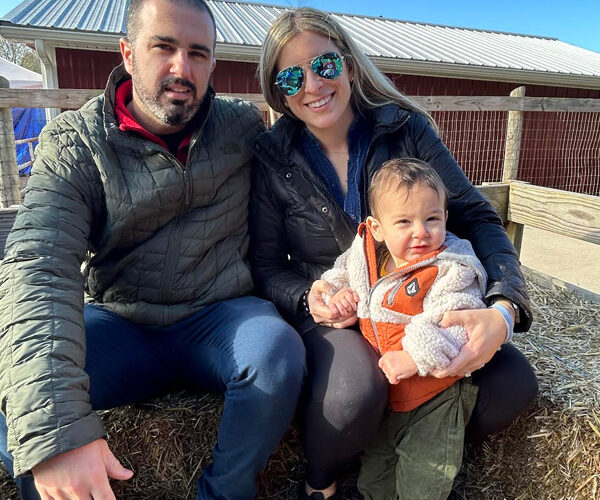
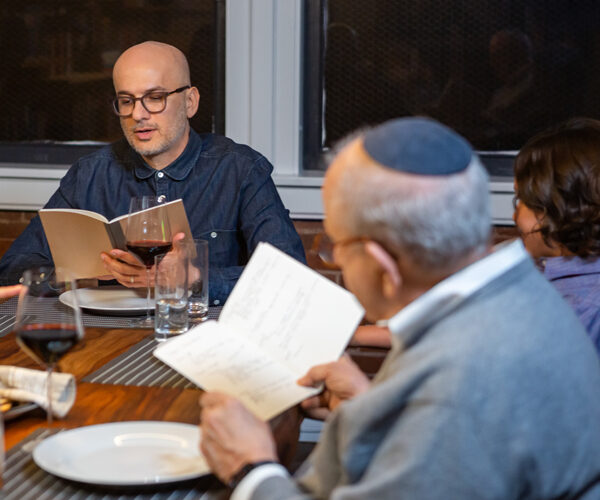


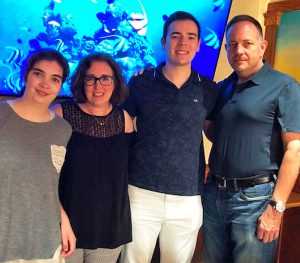




 Please Wait while we loading your video.
Please Wait while we loading your video.